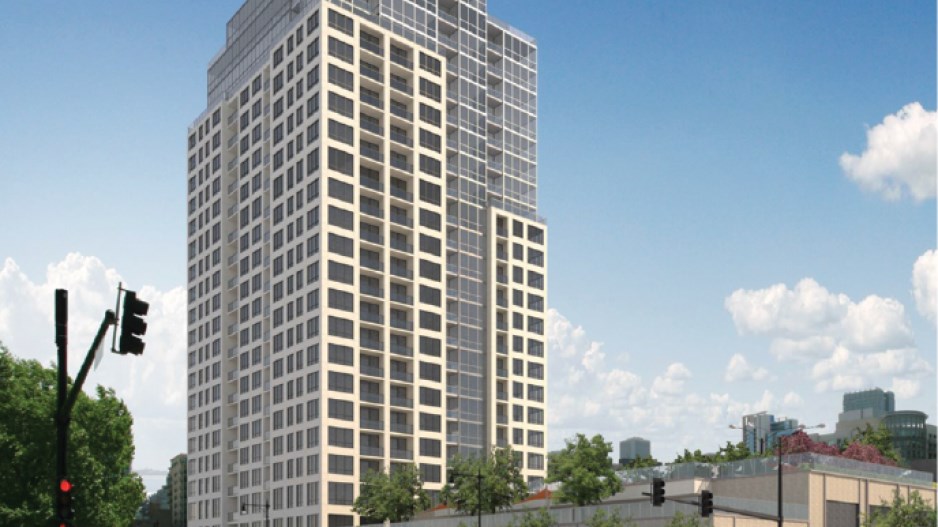In their home city, Vancouver developers far prefer to build condominiums than other kinds of housing, but when it comes to launching projects in the U.S., they have found more success in constructing rental buildings and shunning multi-family strata projects.
That's one of the lessons smaller developers that want to diversify geographically can learn from companies such as Onni Group and Cressey Development Group, which are building thousands of rental units in major U.S. centres, said Urban Development Institute Pacific region CEO Anne McMullin.
Part of the reason rental housing rules in the U.S. is that the global economic downturn gutted the housing market in many parts of the country, forcing homeowners to walk away from their properties with sunken credit ratings. As a result, the pool of potential renters is larger than normal, Onni executive vice-president Chris Evans told Business in Vancouver.
Another reason is that there is a litigious culture south of the border that means that buyers often sue developers if differences arise, added Cressey vice-president Hani Lammam.
“Seattle is not a pleasant place to be in the condominium business,” said Lammam, whose company built condominiums in that city years ago. Cressey recently completed a 75-unit apartment project in downtown Seattle and has two other projects, with a total of 421 units, on the drawing board. All three of those recent projects were in partnership with Seattle's Madison Development Group.
“U.S. buyers can basically walk away from a condo sale by leaving 3% of the purchase price behind,” Lammam said. “Besides, renting is widely accepted. It's a custom. You rent and then you buy a single-family home. Condominium living just isn't as accepted as it is here.”
Onni is the most ambitious Vancouver developer building rental housing in the U.S., having broken ground on the first of 1,500 rental units in downtown Los Angeles earlier this year.
The company plans to build 1,945 rental units in downtown Seattle and about 2,000 rental units in Chicago. It also owns and manages 3,800 rental units in Phoenix.
“We look at all of our U.S. developments from a rental point of view, but we want to also have the flexibility to go to condominiums in the future if the market would bear them,” Evans said.
Demand for rental units in the U.S. is so strong that a rising number of developers that swooped in to bulk-buy condominiums at distressed prices during the economic downturn are trying to convert those projects into rental buildings in states such as Florida.
A new Florida law says that if 80% of strata owners agree to sell the building or convert it to a rental project, the remaining owners could be forced to sell. The law adds that if 10% of the remaining owners oppose the change, they can block the sale. Predictably, that has spurred lawsuits from condominium owners who remain underwater on their purchases.
“The market certainly today is for rental,” Evans said. “Our expectation is that the condo market, which was there pre-2008, will be back. It's just a matter of time.”




